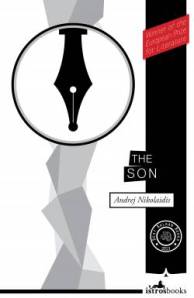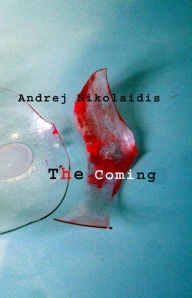I was so pleased that Susan from Istros books had agreed to do a piece on being a publisher in the modern world of publishing books in Translation .I agree with her on the point about scope for a new Book Prize .
A few weeks ago – more than I care to remember(!) – Stu asked me if I would like to write a guest post on his blog. As he has written so many posts in honour of Istros’ titles, I could hardly refuse, but the title made my heart sink a little – ‘The Experiences of a Small Publisher’. Well, my first thought was that ‘Trails & Tribulations’ or simply ‘Frustrations’ might have been better, but then I stopped myself: ‘Don’t be negative!’
So maybe I should begin at the beginning, as Lewis Carroll’s king advised, and tell you how I came to be a small publisher championing the cause of the people of the Balkan wonderlands….. Well, after living for some years in Croatia and Slovenia, and travelling extensively in Bosnia and Romania, and quite apart from all the friendships and contacts I have across the region….well, there came a point where all these strands of my eclectic life seemed to be wanting to draw together and make some kind of pattern; something of substance. As a writer and lover of literature, that thing of substance turned out to be Istros Books: a small voice in the land of publishing giants.
Now into its third year, the successes of Istros for me have been the following: working with some of the region’s most accomplished and interesting authors; building relationships with some dedicated and talented translators; being supported by an informal network of enthusiasts in the form of literary bloggers; being invited to take part in festivals and fellowships programmes and therefore being introduced to many others who share the same passions.
As things are, and very probably because of the way I am too, my greatest successes have been the quiet ones – the grant application approved, a regional prize awarded to one of the authors, a translation sold to another interested world publisher… The clanging sounds of PR and marketing have not been ringing around Istros, and this has to do with lack of funding as well as lack of aptitude, and seems to be a constant issue. Small publishers really have to struggle to get the word out about their books, and having no budget for such activities simply means that the effects are very limited. Add to this the huge competition to gain reviews from the handful of reviewers who are interested in translated fiction, and you end up with a constant fight on your hands.
And so this raises the inevitable question ‘What is to be done?’. I have reached the point where I don’t think I can do much more on my own: I need the help of others, in one way or the other. Could we do with the instigation of a new literary prize for European Literature in English in order to profile and publicize works which are now neglected? A prize that bubbles up from the bloggers and the publishers at the grassroots level and serves to promote good writing from a continent which we are – and will always be – intimately connected to? Should small publishers band together and work out a strategy for marketing that means we can do a whole lot more for less, simply because we share the financial burden? One way or the other, we have to fight for our place on the market, or we shall loose it.
As someone who has worked in refugee collective centres, wartime Bosnia and teenage cancer units, I have been witness to the cry of of despair. That is why I try to remain positive and focus on my mission of bringing the forgotten voices of S E Europe to the British public, and not too much on the frustrations of marketing, distribution and the garnering of reviews – all of which can easily become bywords for ‘frustration’. But just sometimes (mostly when surveying the sales figures at the end of the month), I have been known to let out the odd squeal of desperation.
Can I also add that as of today most of Istros books are now available a e books for the first time here





